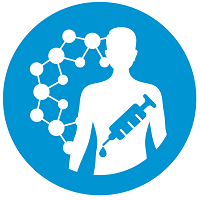Preclinical, Clinical and Translational Sciences
Combination of Chemo-Immunotherapy with N-(2-hydroxypropyl) Methacrylamide-Based Polymer Conjugates for Cancer Treatment
Monday, October 21, 2024
3:30 PM - 3:45 PM MT
Location: 251 DE

Jiahui Li, Pharm.D.
Research Assistant
University of Utah
Salt Lake City, Utah
Rapid Fire Speaker(s)
Checkpoint inhibitors (ICIs) have revolutionized cancer treatment, becoming a cornerstone of modern oncology. Yet, their effectiveness is often limited in patients with "cold" tumors, which are marked by low T-cell infiltration and minimal immune activity, leading to poor responses. To overcome this challenge, we developed the second-generation, long-circulating N-(2-hydroxypropyl)methacrylamide (HPMA) copolymer-epirubicin conjugate (KT-1). This innovative compound not only reduces off-target toxicity but also induces immunogenic cell death, effectively "heating up" cold tumors.
By combining KT-1 with an HPMA-based multivalent polymer-peptide anti-PD-L1 antagonist (MPPA), which redirects surface PD-L1 from recycling to lysosomal degradation, we have significantly enhanced the responsiveness of the 4T-1 murine triple-negative breast cancer model and other cold tumor microenvironments. Our optimized dosing schedule in B16F10-bearing C57BL/6 mice has further demonstrated remarkable improvements in in vivo treatment outcomes. This dual-treatment combination aims to transform the landscape of cancer immunotherapy, offering new hope for patients with previously unresponsive tumors.
By combining KT-1 with an HPMA-based multivalent polymer-peptide anti-PD-L1 antagonist (MPPA), which redirects surface PD-L1 from recycling to lysosomal degradation, we have significantly enhanced the responsiveness of the 4T-1 murine triple-negative breast cancer model and other cold tumor microenvironments. Our optimized dosing schedule in B16F10-bearing C57BL/6 mice has further demonstrated remarkable improvements in in vivo treatment outcomes. This dual-treatment combination aims to transform the landscape of cancer immunotherapy, offering new hope for patients with previously unresponsive tumors.
Learning Objectives:
- Examine the development of N-(2-hydroxypropyl)methacrylamide (HPMA)-based polymer conjugates for targeting and treating cold tumors.
- Assess the therapeutic potential of HPMA-based polymer conjugates in improving treatment outcomes for cold tumors in vivo.
- Investigate the mechanisms by which HPMA-based polymer conjugates enhance the immune response within the tumor microenvironment.


